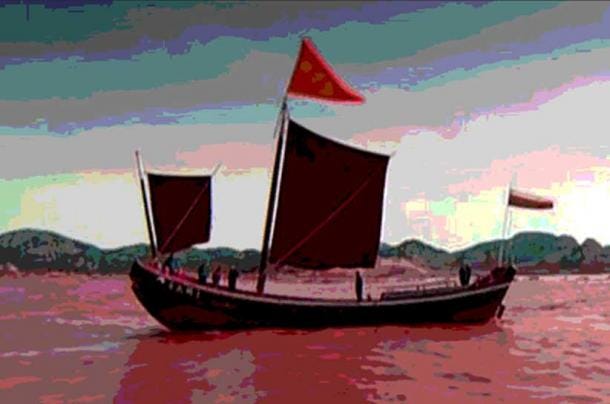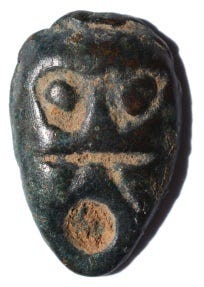Dear all
Thanks for the feedback I’ve received about the Saturday historical and cultural posts. To answer the thread of questions: yes, I will be taking the history up to the present day; and yes, I will be writing some more about Chinese culture, including a piece on the story behind Chinese New Year in a few weeks’ time.
Last week we looked at the Shang, regarded as the first proper dynasty in Chinese history, who took over from the Xia in about 1600 BC. Today we are looking at their successors, the long-lived Zhou, who reigned in one form or another from 1046 BC to 221 BC.
Just a quick note before we start about Tuesday’s upcoming geopolitical newsletter. With the issue of Scottish secession from the United Kingdom very much in the British news these days, I’ll be exploring what lessons the UK can learn from China about how to keep a country together.
In the meantime, please remember to like, share, and subscribe!
***
For the last three millennia the Chinese authorities have shown a remarkable ability in slighting the opposition. In more recent times the Last Governor of Hong Kong, Chris Patten, found himself at the forefront of official insults designed to belittle and undermine his authority. Incensed by his attempts to introduce democracy into the colony ahead of the 1997 Handover, Beijing let loose with a steady stream of invectives. These included the standard “whore” and “serpent”, to the more descriptive “sinner of a thousand years” and “lame duck and triple violator rampant”, and my personal favourite, “tango dancer”.
No doubt Lord Patten would have been heartened to know that the denigration of one’s foes has an ancient origin in China, starting with the topic of today’s post, the Zhou Dynasty.
After nearly five centuries of control, the Shang dynasty finally came to an end, despite the best efforts of their military leaders like the Lady Hao. The last Shang king, Di Xin, was defeated in battle and committed suicide, leaving the door open for the victors to proclaim their own reign across the Yellow River valley basin.
The problem for the new rulers, the Zhou, was how to legitimise their dynasty given that it was widely believed by the people that the Shang had ruled with the support of Heaven. The obvious solution was to follow the time-honoured method of trashing the leader just deposed, and this the Zhou did, but with a twist. The new ruling class proclaimed that the last Shang king had been so foul and depraved that he had lost the support, or mandate, of heaven.

In essence, the Mandate of Heaven is a celestial compact made between a leader and the cosmos, in the form of the sky god – a rough Chinese equivalent to the Divine Right of Kings. In return for aligning worldly affairs with the heavens and maintaining peace and harmony, the sky god would legitimise just one ruler.
This compact would fail if the ruler let instability creep into earthly affairs or allowed his people to suffer, whether by natural or man-made afflictions. In such a scenario, the mandate would be removed, and handed over to a more worthy ruler.
This is not a dead concept. Officially, perhaps, there is no room for such an antiquated notion in modern, Communist China. Yet it lurks in the collective memory of the Chinese people, and if there is a time when the CCP and China are racked with instability, there will no doubt be those who proclaim that the mandate is nearing its end…
Back to the Zhou. The accusations they made against King Di Xin in order to prove his loss of mandate were extraordinary. Ranging from drunkenness to cannibalism, they also included specific claims of sadistic punishments, like the execution of hapless officials by forcing them to hug a roasting hot bronze cylinder. There were, of course, also the standard sexual slurs, such as incest and the singing of pornographic songs.
The most vivid claim, however, was that the degenerate king had constructed a lake made of wine, upon which he and his courtesans whiled away the days floating about on boats. When they were thirsty, they simply cupped their hands and drank, and when hungry, pulled meat out of the special “meat trees” that had been built, literally, out of roasted meat.
Whatever the truth, the propaganda worked, and in some style. The Zhou – the third of the pre-unification dynasties, after the Xia and the Shang – went on to set the world record for dynastic longevity.
Lasting around 800 years, thirty-nine kings came and went over a period of immense and fundamental change. The Zhou oversaw an explosion in intellectual and artistic creativity, transformations in society, government and warfare, all of which combined to solidify what it meant to be Chinese.
Literature blossomed, and the Five Classics, books that make up arguably the core of Chinese written culture, come from this period. Irrigation was improved, and a network of canals built to transport goods and armies. Iron appeared in about the eighth century BC, as did money, originally pieces of cast bronze shaped like knives or spades, but also cowrie shells and basic coins that are delightfully known as “ant nose money”.
As its economy began to develop, so China’s links with the outside world started to take shape. Although there had been flow between east and west of technologies and agricultural products for thousands of years, it appears that it was during the Zhou period that the trade routes that would later become the Silk Road became more formalised. We see silk arrive in Europe for the first time, in Germany in the sixth century BC, and there were imports too, with Greek influenced goods making their way to the Western edges of China.

The Zhou wasn’t a peaceful dynasty, however. Resoundingly defeated in battle in 771 BC by rebellious nobles and their barbarian allies, the next five hundred years saw the Zhou rulers progressively lose their authority – but not their throne. Instead, under the mirage of Zhou overlordship, the territory split into a series of separate dukedoms and kingdoms, all of whom would compete in the manner of later European states.
This second half of the Zhou’s reign has been further divided into two separate, but intertwined eras. The first, the Spring and Autumn period (771 BC – 476 BC), was defined by the continued decline of the Zhou’s central authority. This in turn allowed a blossoming of new and competing philosophical ideas, in what became known as the Hundred Schools of Thoughts. The two most significant political philosophies of China, Confucianism and Legalism, both owe their origin to this time.
The Spring and Autumn period was also the precursor to one of the most extraordinary eras in any country’s history, the Warring States period. No longer satisfied with verbal attacks, the Chinese elites turned on each other with a bloodiness that surpassed anything yet seen anywhere in the world.
This we will look at next week.



